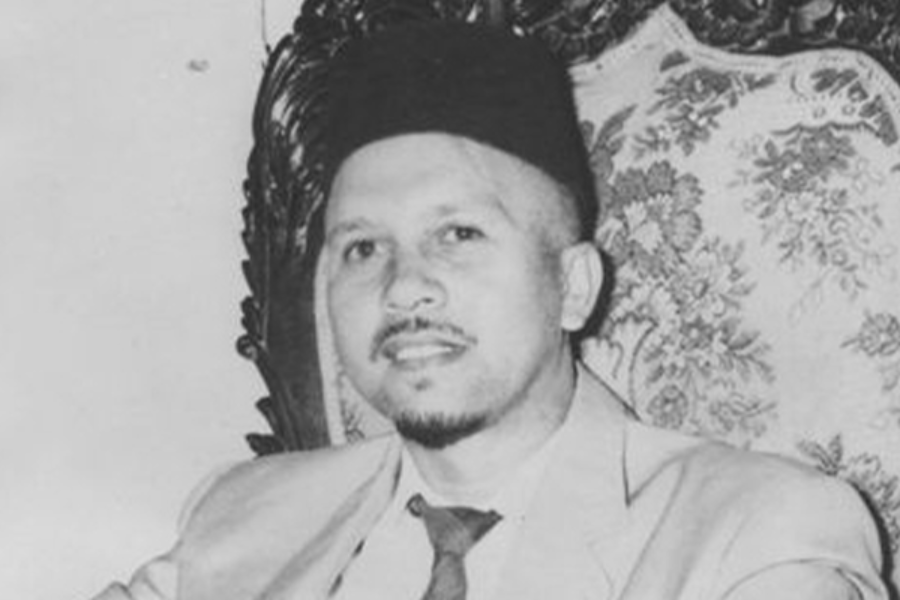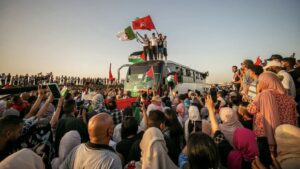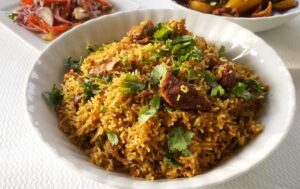
When Islamic scholar and activist Imam Haron was tortured by Apartheid-era police,he was spiritually prepared to face anything, even death, writes his grandson Shaykh Imtiyaz Ahmad Haron.
My grandfather, Imam Abdullah Haron (d.1969) was a devoted Imam among his congregants of the Al-Jamia masjid in Greater Cape Town’s Claremont but he was also a relentless activist for justice and freedom against the apartheid government that eventually killed him.
As a committed member of the Pan African Congress and other activist groups, he vocally fought against the apartheid laws that forced him and others to be evicted from their homes by the dreaded Group Areas Act.
While these are known activities, very little was – and still is – known about his spiritual life. While a handful knew about his regular weekly fasts, not many were aware of his frequent visits to the kramats or maqbaras – an act that was considered a bidi’a (innovation) by some myopic-minded theologians.

Even though my grandfather gave attention to the designer clothes he wore and the manner he socialized with others, those were – as I look back at his life – not his primary concern. Yes, those were important but they were secondary. This is something that few comprehended and appreciated. From my understanding and reading, my grandfather’s main concern, like many spiritual oriented personalities in Muslim history – for example, Shaykh Yusuf Al-Makassari (d.1699) – was life in the Hereafter. And, for this, my grandfather prepared himself diligently and spiritually.
As far as I have come to know, my grandfather’s main focus was how to serve Allah best in an apartheid environment – one where the majority was oppressed and deprived of their rights as human beings and one in which their dignity was demonstrably undermined. My grandfather, as he mingled and involved himself in community’s affairs, realized that he had to be spiritually armed and geared to deal with the socio-political issues that he and the community encountered. Because of my grandfather’s broad mature understanding of Islam as a way of life, he was socially and politically involved but all of that was underlined with a deep sense of spirituality.
My grandfather demonstrated to everyone (while he was detained) that he would stand firm against his torturers, despite the brutal torture that he endured.
When my father and grandmother saw his bruised body on 28 September 1969, it was evident that he bravely endured it and never divulged his sources. He could not be ‘broken’ by his beastly intimidators, they were unable to destroy his spirit.
The main reason for this, as I see it, was the fact that he was spiritually prepared for whatever he faced during that period. The question is how did he manage to reach this spiritual state? And here I want to briefly identify and reflect on activities that we – as Muslims – are familiar with and somehow take for granted.
Sustained
Firstly, my grandfather was among a few individuals in our community that fasted Mondays and Thursdays. He performed this practice since his return from Makkah where he was taught and mentored by Shaykh Alawi Maliki, who was one of the leading Ba-Alawi Shaykhs. This Shaykh also assisted him in memorizing the Qur’an and this was the second important activity that sustained him throughout his life. He recited the Qur’an daily.
My grandfather recited the Qur’an constantly. At the time when he was appointed as imam of Al-Jamia masjid in 1955, he worked as a salesperson for Wilson Rowntree, the sweet company that he joined during the early 1960s up to the time he was detained. These sales trips took him to the townships that were off-limits for those who belonged to non-African communities. In these townships, he was well received, and he was known among them as ‘mfundisi’.
Besides his daily recitations and fasting, he too participated in weekly thikrs that contributed towards his status as a spiritually uplifted person. My grandfather, the well-dressed Imam, was a Sufi of sorts. He was, for example, involved in the Ibadurahman Qadiryyah order’s weekly and monthly rituals and he was also associated with the Naqshbandiyya order. He reminded me and us all of Shaykh Yusuf who lived a similar life during an earlier era. But even though my grandfather was not a Sufi Shaykh like Shaykh Yusuf, one can venture to confidently state that he was a dedicated individual who faithfully performed these rituals to reach the highest station in human life; a station that we – ordinary mortals – strive to achieve and reach.
It is as a result of all of these spiritually oriented activities that shaped my grandfather’s outlook and habits. And because of his socio-political deeds in helping his fellow oppressed communities, he ultimately attained the status of ‘martyrdom’ (shaheed); a position that was conferred on him by his Cape followers.
While theologically or jurisprudentially some might argue that he did not really achieve this status because of the set criteria in Muslim theology, his case forces one to think differently. He was granted this status because of the noble sacrifices that he made and that, one is certain, our Creator factored in.


